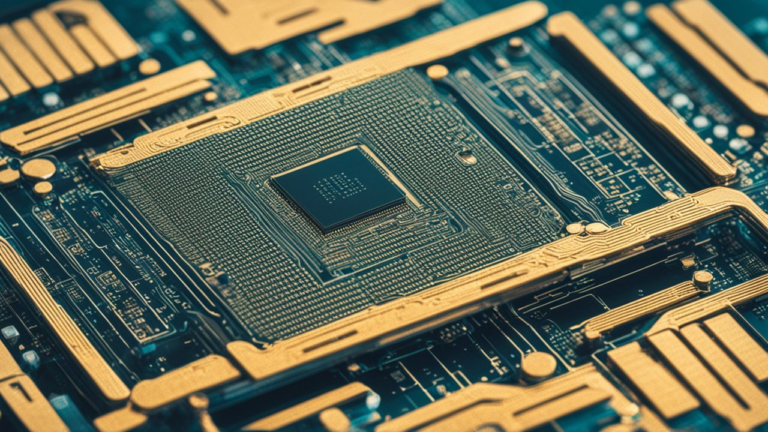
The pace of innovation in AI chip design and AI compute development has reached unprecedented levels, with key players in the industry pushing the boundaries of what is possible. In this article, we’ll explore the latest advancements in AI chip design and AI compute, highlighting the companies driving this progress and the implications for the future of AI.
AI Chip Design: A Rapidly Evolving Landscape

AI chip design has undergone a significant transformation in recent years, with the introduction of specialized architectures and innovative manufacturing techniques. Companies like Google, Microsoft, and NVIDIA have been at the forefront of this revolution, developing custom AI chips that offer unprecedented performance and efficiency.
Google’s Tensor Processing Units (TPUs) are a prime example of this innovation. Designed specifically for machine learning workloads, TPUs offer significant improvements in performance and energy efficiency. TPUs have been integrated into Google’s data centers, enabling the company to process massive amounts of data and train complex AI models at unprecedented speeds.
Microsoft has also made significant strides in AI chip design, introducing its Azure Machine Learning (AML) platform and custom-built AI chips. AML provides a cloud-based platform for building, training, and deploying AI models, while Microsoft’s custom AI chips offer improved performance and energy efficiency.
NVIDIA, a pioneer in AI chip design, has continued to push the boundaries of what is possible. The company’s Volta and Tesla V100 GPUs have set new standards for AI compute performance, offering unprecedented levels of parallel processing and memory bandwidth. NVIDIA’s latest offering, the T4 GPU, is designed specifically for cloud-based AI workloads, providing improved performance and energy efficiency.
XAI’s AI-Powered Solutions

XAI is an emerging startup specializing in AI-powered solutions tailored for industries such as healthcare, finance, and retail. The company focuses on accelerating AI workloads, including machine learning and natural language processing applications. While specific details about XAI’s proprietary AI chip architecture and operational scale are not widely documented, the startup aims to deliver high-performance solutions with low power consumption. As an active participant in the evolving landscape of AI chip development, XAI is positioned to contribute innovations that enhance efficiency and scalability across edge and cloud-based AI environments.
Implications for the Future of AI

The rapid pace of innovation in AI chip design and AI compute development has significant implications for the future of AI. As AI chips become more powerful and efficient, we can expect to see widespread adoption across industries, from healthcare and finance to transportation and entertainment.
The development of cloud-based AI platforms and edge AI has also opened up new opportunities for companies to build and deploy AI models at scale. This has significant implications for industries that rely heavily on data analysis, such as finance and healthcare, where AI can be used to improve decision-making and patient outcomes.

In conclusion, the pace of innovation in AI chip design and AI compute development has reached unprecedented levels, with key players in the industry pushing the boundaries of what is possible. As AI chips become more powerful and efficient, we can expect to see widespread adoption across industries, with significant implications for the future of AI.
Cheers,
Davie
©2024 Davie Waulaucher












